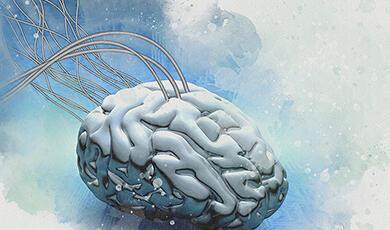Automation Anxiety
Share
- Details
- Text
- Audio
- Downloads
- Extra Reading
Ever since modern economic growth began three centuries ago, people have suffered from periodic bursts of anxiety about the technologies of the time taking on the work that they do. This opening lecture explores the history of ‘automation anxiety’ – from the Luddites who smashed framing machines at the start of the Industrial Revolution in Britain to the protestors who set driverless cars on fire on the streets of San Francisco today. Time and again, their main worry – that there would not be enough work for people to do – turned out to be wrong. But they did have legitimate grievances as well.
Download Text
Automation Anxiety
Daniel Susskind, Gresham Professor of Business
9 September 2025
Remarkable technological progress
Every day, it seems, we hear stories of systems and machines taking on tasks that we thought only human beings alone could ever do: making medical diagnoses and driving cars, drafting legal contracts and designing buildings, composing music and writing news reports. What’s more, the leaders of the large AI companies – Anthropic, OpenAI, DeepMind – all now claim, in different ways, that we will build a system that can outperform human beings at every cognitive task that they do, within a decade.
Of course, there are good reasons to discount these claims – not least the strong financial interest that these companies have in talking up the capabilities of their technologies. But at the same time, it is worth remembering that there are few examples in human history where we have dedicated so much financial resource, and so many talented people, in pursuit of a single goal – building these extremely capable AIs. What’s more, it is clear that these companies are making progress towards that objective.
Understandably, given the remarkable technological progress that is underway, people are increasingly worried about what this might mean for the work that they do. In the US, 30 per cent of workers now believe their jobs are likely to be replaced by robots and computers in their lifetime. In the UK, the same proportion think it could happen in the next twenty years. The world today is gripped by ‘automation anxiety’.
The return of ‘automation anxiety’
But this ‘automation anxiety’ is not a new phenomenon. In fact, ever since modern economic growth began two-and-a-half centuries ago, people have suffered from periodic bursts of anxiety that the technologies of the time would take on the work that they do.
The most famous example of our anxious ancestors were the Luddites: during the Industrial Revolution, the anxiety that automation would destroy jobs spilled into protest and dissent, and technological vandalism – destroying equipment, damaging factories – became widespread. These vandals became known as “Luddites”, taking their name from Ned Ludd, an apocryphal East Midlands weaver who was said to have smashed a set of framing machines at the start of the Industrial Revolution.
Importantly, though, these sorts of worries about technological progress leading to a world without enough work have been wrong, time and again – there has always been enough work for people to do (and when there hasn’t been enough work, it has not been because of technological progress). That is what Figure 1 shows: unemployment in Britain has had ups and downs since 1760, but there have never been persistent pools of mass unemployment due to technological progress.
For that reason, we use the term ‘Luddite’ today as a term of disparagement – if we think that someone does not understand how a technology really works, perhaps, or if they are worrying unduly about its possible harmful consequences, then we dismiss them as Luddites, brushing them off as technologically illiterate.
Figure 1: Unemployment rate in Britain, 1760 – 1900 - Source: Susskind (2020) See downloadable transcript.
Thinking more carefully about automation
The argument of this opening lecture, though, is that it is wrong to dismiss the Luddites so readily. While the Luddites might have been mistaken about their primary fear – that new technologies would create large pools of unemployed people – they still had legitimate grievances. New technologies may not have reduced the number of jobs in the way that they feared, but they did undermine the nature of those jobs in various significant ways.
How did the nature of work change? The pay of work suffered, in spite of remarkable productivity increases. The quality of work declined, as automation spread. The status of work was tarnished, as lucrative high-skilled crafts like hand weaving and candle making were turned into low-skilled activities. And more generally, the distribution of power in the economy became more unequal – a small number of entrepreneurs and businessmen became extraordinarily wealthy, wielding enormous economic and political power as a result.
This story about the Industrial Revolution is not simply an interesting historical detail: it matters a great deal for thinking about the impact of new technologies on work today. In a similar way, there are currently few signs that new technologies like AI are affecting the number of jobs in dramatic ways – unemployment is at record lows in many places. In that sense, the most recent wave of ‘automation anxiety’ is misplaced. But there are signs that new technologies are affecting the nature of jobs – and in very similar ways to the past. And so in that sense, ‘automation anxiety’ today may not be so misplaced after all.
Today, commentary on the future of work is dominated by worries about the number of jobs that will have to be done in the future: think how often you come across a variation on the headline, ‘Will a robot take your job?’. This lecture explains why this narrow focus on the number of jobs alone is unhelpful. If we really want to understand the impact of technology on work, we have to consider how the nature of jobs might change as well. And when you do that, you can see that the impact of automation is already far greater than many commonly suppose.
References and Further Reading
Acemoglu, Daron and Simon Johnson. Power and Progress. (2024)
Altman, Sam. ‘The Intelligence Age’, September 2024. <https://ia/samaltman.com/>
Amodei, Dario. ‘Machines of Loving Grace’, October 2024. <https://darioamodei.com/>
Frey, Carl. The Technology Trap. (2019)
Susskind, Daniel. A World Without Work. (2020)
Susskind, Daniel. ‘Technological Unemployment’, in Justin Bullock et al. (eds), The Oxford Handbook of AI Governance. (2022).
Susskind, Daniel and Richard Susskind. The Future of the Professions. (2015)
© Professor Daniel Susskind 2025/6
Acemoglu, Daron and Simon Johnson. Power and Progress. (2024)
Altman, Sam. ‘The Intelligence Age’, September 2024. <https://ia/samaltman.com/>
Amodei, Dario. ‘Machines of Loving Grace’, October 2024. <https://darioamodei.com/>
Frey, Carl. The Technology Trap. (2019)
Susskind, Daniel. A World Without Work. (2020)
Susskind, Daniel. ‘Technological Unemployment’, in Justin Bullock et al. (eds), The Oxford Handbook of AI Governance. (2022).
Susskind, Daniel and Richard Susskind. The Future of the Professions. (2015)
Part of:
This event was on Tue, 09 Sep 2025
Support Gresham
Gresham College has offered an outstanding education to the public free of charge for over 400 years. Today, Gresham College plays an important role in fostering a love of learning and a greater understanding of ourselves and the world around us. Your donation will help to widen our reach and to broaden our audience, allowing more people to benefit from a high-quality education from some of the brightest minds.


 Login
Login







